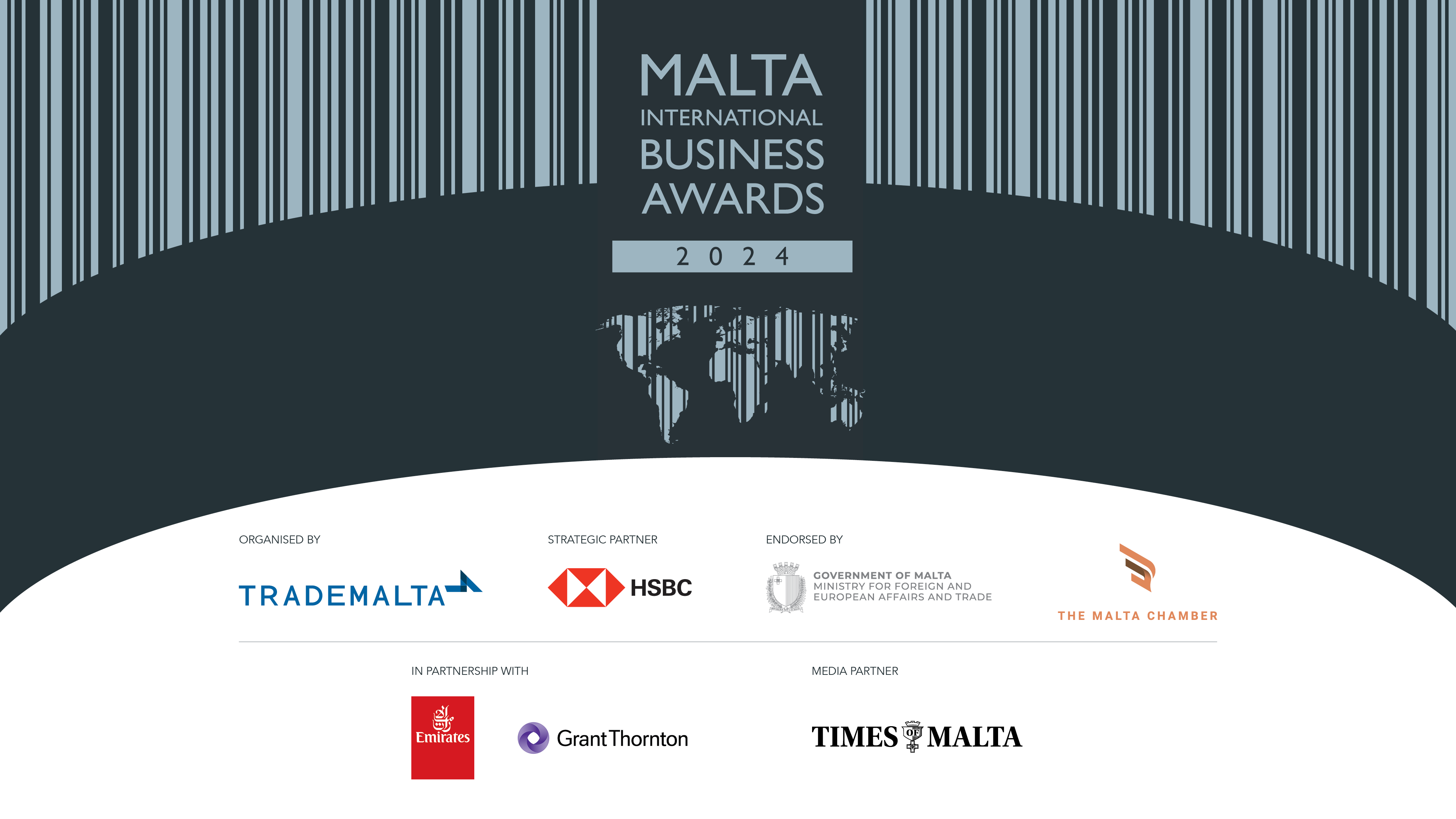
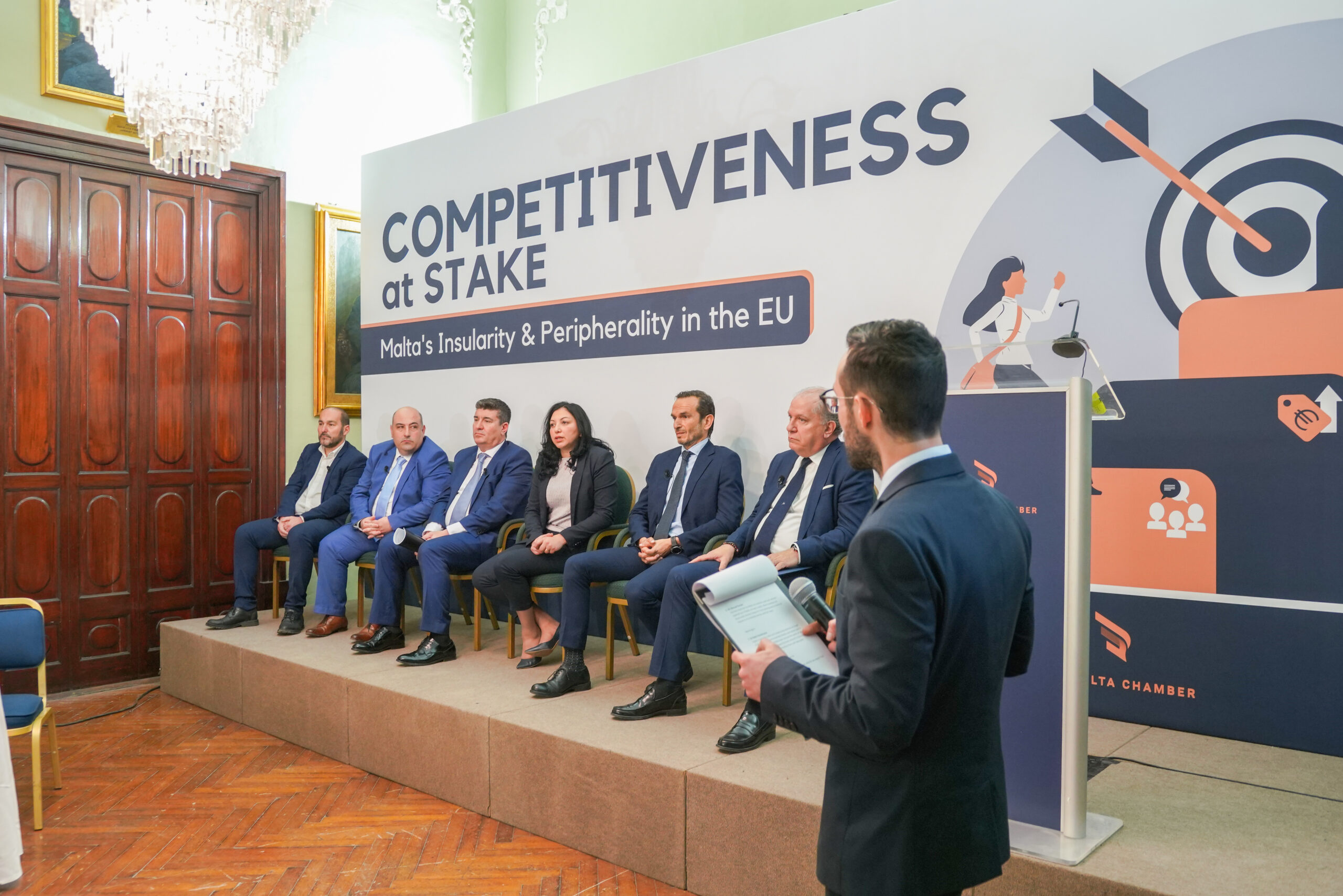
Malta’s competitiveness is heavily impacted by the small size of its market, its insularity and peripherality. These were the main issues tackled head on and with a united front called for by various speakers emphasised during a debate organised by the European Parliament Office in Malta and the Malta Chamber of Commerce, Enterprise and Industry this morning.
The debate started with a reflection on Ukraine, with the Malta Chamber President Marisa Xuereb noting that Europe is now ‘at war with Russia, our biggest energy supplier’. The Malta Chamber President underlined that ‘for Maltese manufacturing companies, the issue of competitiveness is permanently. It stems from the inherent characteristics of Malta as a manufacturing location. Yet if we want to have a diversified economy that reflects European aspirations, manufacturing needs to remain viable. She said that Malta is acknowledged as a remote region under Article 7 of the General Block Exemption Regulations. However this has not so far translated into tangible support for local importers and exporters to mitigate the disadvantages arising from Malta’s peripheral geographical position coupled with its small and insular market. A level playing field with competing European operators and equal access to the Single Market necessitate serious consideration of the logistical challenges of Maltese businesses’.
The Head of the European Parliament Office in Malta Mario Sammut noted that it is one of the duties of the Office to create opportunities where our representatives in the European Parliament listen and discuss with stakeholders with a view to influencing legislation, and this was already the case in the particular case of a debate the Office organised last year with counterparts in France and Spain, with an EP intergroup now working on the proposals raised by the participants there.”
The Malta Chamber of Commerce CEO Dr Marthese Portelli spoke about the challenges that the industry is facing. She said that, ‘locally there should be more digitalisation investment support to help our businesses upscale their operations to be able to address their logistical challenges more efficiently; financial support structures which support businesses in this new reality; and review of customs operations’. Dr Portelli also looked at what needs to be done at EU level, ‘a level playing field with our EU counterparts; addressing the disadvantages that are hindering the growth ambitions of our businesses; addressing the obstacles that are hindering our businesses from scaling up; and removing the barriers that hinder our businesses’ internationalization goals’.
During the same event, the issues of, supply chain disruptions, rising freight costs, labelling requirements, added burdens brought about by Brexit, as well as covid restrictions and the pandemic’s impact on the availability of materials leading to disruptions in manufacturing. All this together with supply and instability of prices are leading to companies stockpiling for just-in-case scenarios. All this is having an impact which at the end is felt by the consumer.
MEPs Josianne Cutajar and Cyrus Engerer (S&D, MT), discussed and listened to various business entrepreneurs, in a debate that ranged well-beyond the impact of insularity and peripherality on Malta’s competitiveness. For this event all Maltese MEPs were invited to participate.
New and existing EU legislation and state aid rules were flagged as being in need of updating, with MEP Cutajar stating that, ‘EU relaxation of state aid rules needs to be discussed beyond the pandemic’. For MEP Cutajar ‘as an islander, coming from Gozo, I know first-hand the permanent geographic and economic disadvantages that Maltese and Gozitan business – especially SMEs – face. As we strive to recover from the pandemic, as well as to achieve the ambitious environmental targets being put forward, it is high time that the EU reaches a pact with its islands, providing islands, especially the small ones at the periphery like ours, with enough flexibility – including when it comes to state aid rules – for them to effectively compete with the European mainland’.
MEP Cyrus Engerer emphasised the need for a shift in perspective: from reacting to EU legislative proposals ‘as if these are external to us, to an ingrained realisation that we are part of the collective decision-making process from the very beginning. We need to pre-empt the law-making process in the EU to influence it effectively, and we need to do this by working together on both political levels and with stakeholders from the start’. He touched on a number of issues affecting consumers, noting in particular the ongoing work for medicinals’ derogations for Malta, Ireland and Cyprus, all heavily impacted by Brexit on this level; the revision of the Emissions’ Trading System where Maltese MEPs are working to pre-empt a bigger burden on the national airline, and aiming to mitigate the environmental transition through the new Social and Climate Fund on which Maltese MEP Casa is lead rapporteur, and to whom all Maltese MEPs are lending their support.
During the Q&A session, AirMalta General Manager for International Affairs Dr Nadia Giordamaina said that, ‘Air Malta’s biggest challenge was identified as the environmental one, with proposed EU legislation aiming to introduce taxation on intra-EU flights only, creating a disproportionate burden on a mainly intra-EU based airline. Added burdens and added emphasis on rail travel and freight in the EU ‘raises the question from 11 million people living on islands: is the EU really concerned for us?’
Farsons’ Group CEO and a member of the Malta Chamber Board of Management Norman Aquilina, said that, ‘competitiveness is not just about costs but also about capabilities. As much as we require recognition from the EU to address pressing realities, we should acknowledge that there are local fees which are part of our making and we need to address’.
The Chairperson of The Malta Chamber MEG committee Brian Muscat highlighted the four main issues that were hindering business, namely: transport costs, energy tariffs, state aid and shortage of labour force. Mr Matthew Wismayer, Director, Pet Nutrition, talked about the difficulties and costs of scaling up when logistics were heavily dependent on maritime transportation, as well as the fact that most important commodities derive from outside the EU, observing how wheat and cereal importation is set to be impacted following Russia’s invasion of Ukraine. Malcolm Camilleri, Deputy CEO, PG, noted how in competing with international giants, pricing is what made one competitive, in a context where, apart from Brexit, businesses are still feeling the Covid effect exacerbated by the fact that local authorities announce changes ‘what feels like every week’. Malta Motorways of the Sea Senior Manager Manuel Portelli, described how despite the obstacles mentioned earlier, connectivity has improved, with a drastic increase in trailers coming to Malta and a shift from container to roll on/roll off business.
Opposition candidate for the PN Jason Azzopardi, speaking from the floor, noted that EU treaties and legislation already allow for a cogent argument to be made for Malta to be considered with a special island status under EU law – in response to earlier speakers noting that Malta being a member state and not a region in the EU means it is not fully benefitting from remedies to ease the specific obstacles it faces, particularly in transport costs. He called for ‘across-the-board support’ for this at EU level.
MEP PN candidate Peter Agius noted that Malta is little represented in Brussels, with a sole permanent representation, compared to over sixty representations for each of the German regions. Nevertheless, he said, ‘there are ways to know ahead what is brewing in Brussels as the European Commission publishes its work plan at least a year ahead of taking action’.
This event was moderated by The Malta Chamber Communication Strategist Rachel Attard and Economic Policy Analyst Nathan Chatland. During this event an online survey was launched.
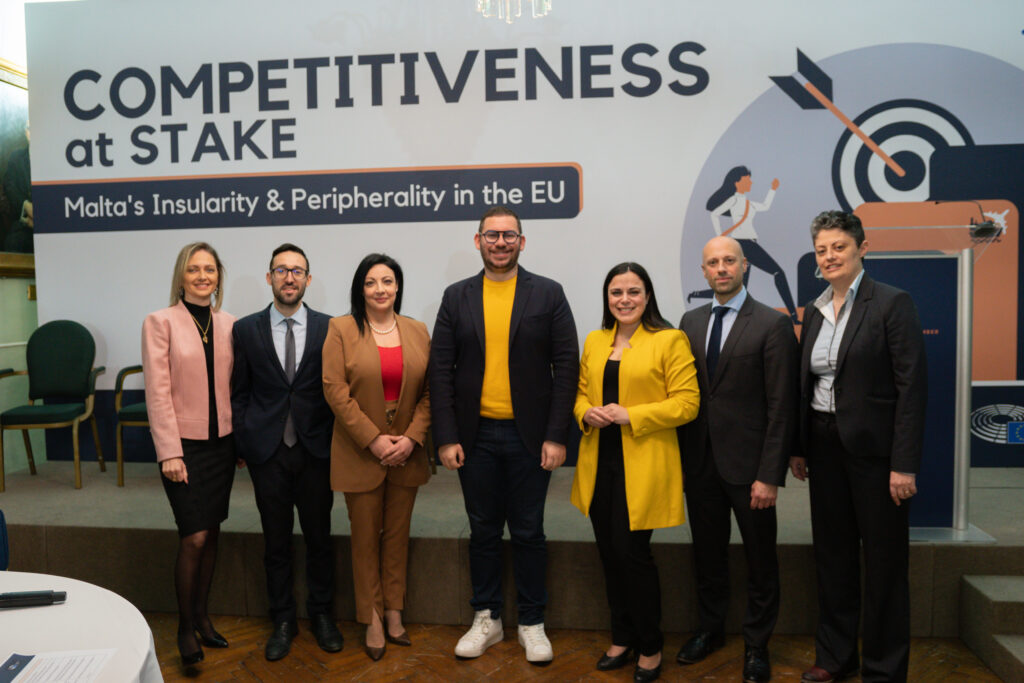
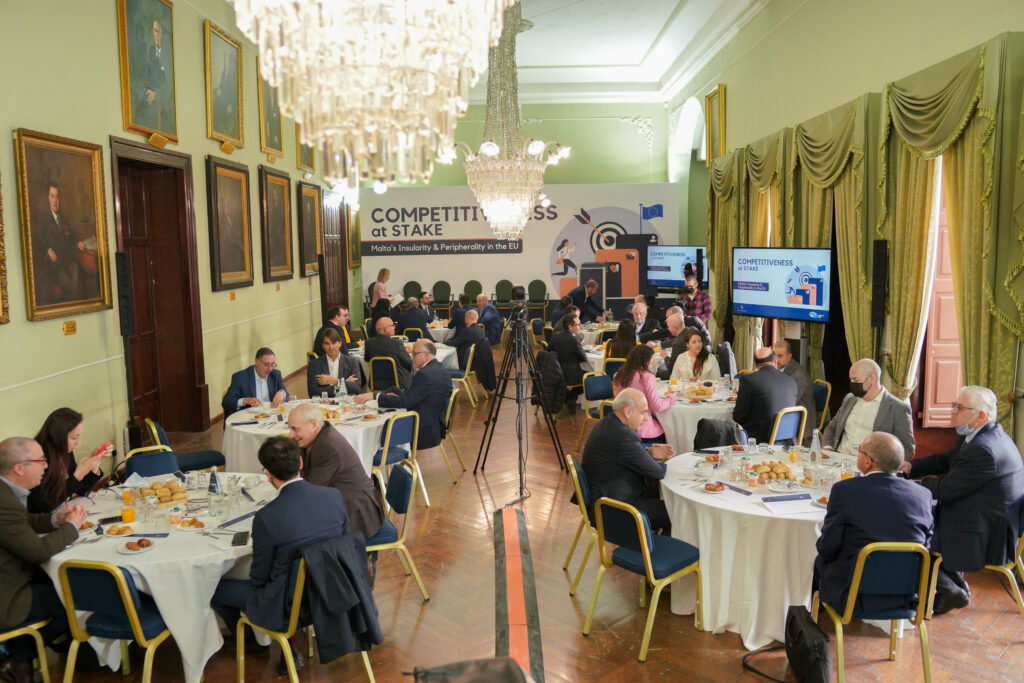
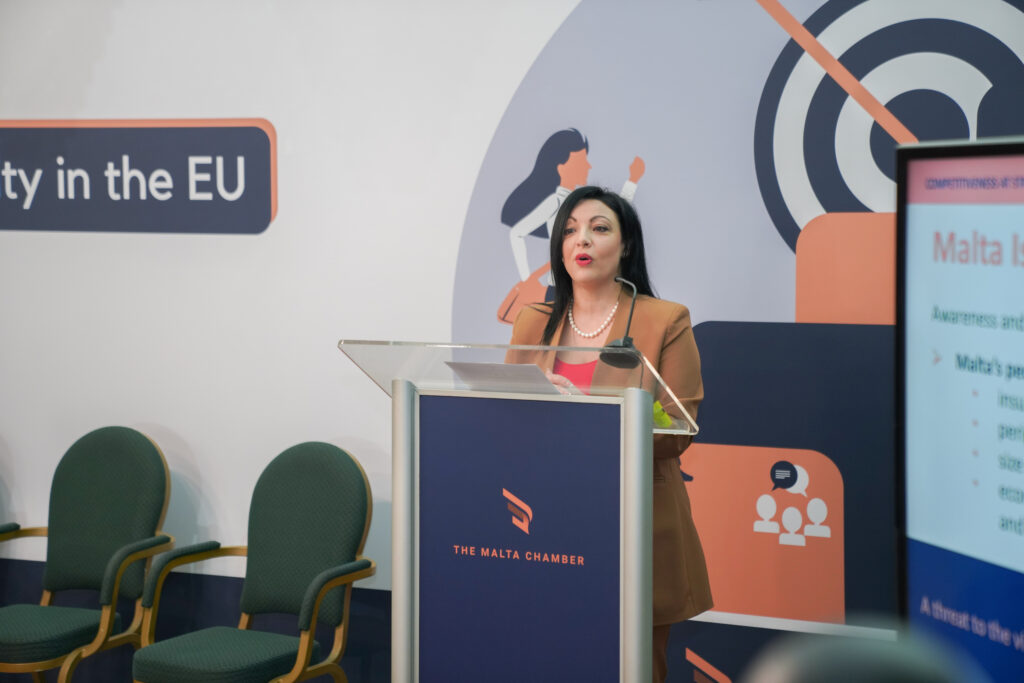
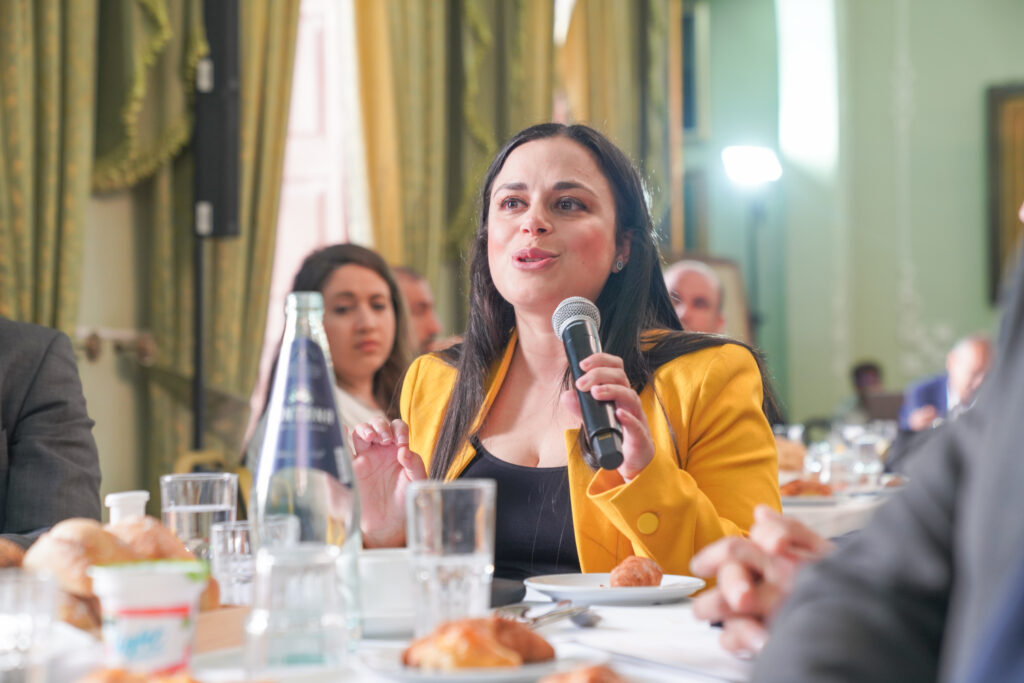
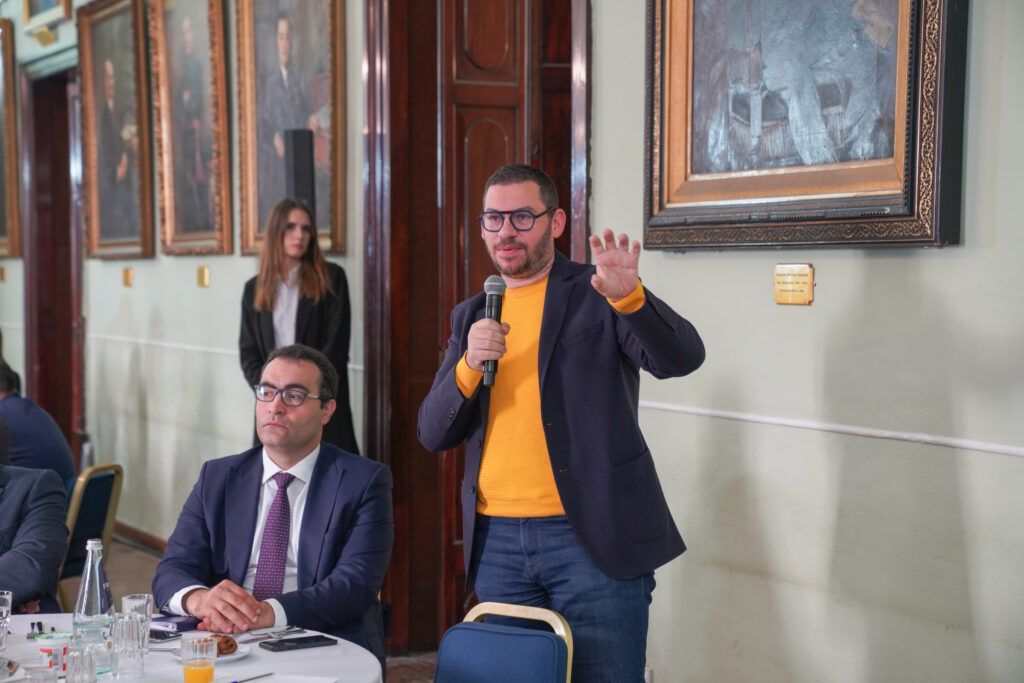
...
...


...

...
